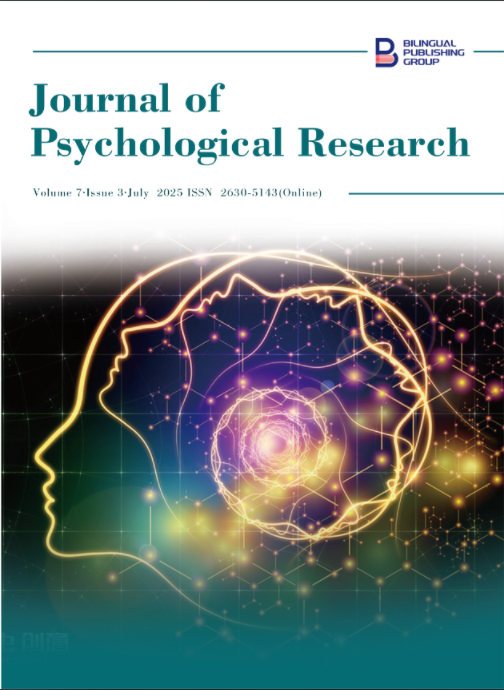-
688
-
577
-
402
-
322
-
294
Development of a Questionnaire on Subject Interest among Primary School Students
DOI:
https://doi.org/10.30564/jpr.v7i3.8428Abstract
The development of interest can improve the efficiency and quality of students’ learning activities. Previous research mainly explored professional interest, but less on subject interest. This study designed and validated a subject interest questionnaire for primary school students to assess their potential to predict academic performance and offer reference for educational assessment and counseling. A sample of 545 students from two primary schools in Beijing was selected. The questionnaire consisted of 138 questions involving eight major courses, such as Chinese, mathematics and English. Through analysis, questions with good discrimination and social desirability were screened out, and nine questions of each sub-scale were finally retained. According to the result, the reliability and validity of the questionnaire reached an acceptable level. Further analysis of exploratory and confirmatory factors revealed that the subject interest can be summarized into two dimensions: “humanities-related factor” and “mathematics-related factor”. The two dimensions are consistent with the “human and material dimensions” proposed by ACT. As a preliminary exploration, this study lays a foundation for further research on the relationship between subject interest and basic interest and provides a practical evaluation tool for primary education.
References
[1] Li, B.S., Yan, G.C., 1993. Educational Psychology. East China Normal University Press: Shanghai, China.
[2] Fryer, L. K., Shum, A., Lee, A., et al., 2021. Map** students’ interest in a new domain: Connecting prior knowledge, interest, and self-efficacy with interesting tasks and a lasting desire to reengage. Learning and Instruction. 75, 101493. DOI: https://doi.org/10.1016/j.learninstruc.2021.101493
[3] Boekaerts, M., Boscolo, P., 2002. Interest in learning, learning to be interested. Learning and Instruction. 12, 375-382. DOI: https://doi.org/10.1016/S0959-4752(01)00007-X
[4] Mo W., Zhang Y., Fu Y.H., et al., 2022. A Study on Influence of Experiential Learning Based on Graphical Interactive Resources on Pupils’ Geometry Learning. e-Education Research. 43(06), 77-85. DOI:10.13811/j.cnki.eer.2022.06.011
[5] Cai Y.H., Lin C.D., Xiao L.P., 2002. Vocational interest’s construction and characteristic of middle school student. Psychological Development and Education. 18(1), 80-85. DOI: 10.16187/j.cnki.issn1001-4918.2002.01.017
[6] Bai L.G., Ling W.Q., Fang L.L., 1996. Construction of the Chinese vocational interest inventory of Holland type. Acta Psychologica Sinica. 28(01), 113-119. Available from: https://journal.psych.ac.cn/acps/EN/Y1996/V28/I02/113
[7] Long L., Peng P.G, Zheng B., 1996. A trial report of the Self-Directed Search (SDS). Applied Psychology (01), 44-51.
[8] Dai Xiyun, Li Jian, Zhang Bo, & Gao Yiran. (2013). The structure and measurement of vocational interests among contemporary college students. Psychological Exploration(03), 260-265 (In Chinese).
[9] Zhang Y., 2013. Vocational interests in China: An evaluation of the Personal Globe Inventory-Short [Thesis]. Zhengzhou: Zhengzhou University.
[10] Zunker, V.G., Norris, D.S., 1998. Using assessment results for career development, 5th ed. Pacific Grove, CA: Brooks/Cole Pub. Co: California, USA.
[11] Li Jianbin, Hu Xiangling, & Song Lianyi. (2024). High school students' physics interest scale: Model reconstruction and reliability and validity test. Physics Teacher(05), 2-8 (In Chinese).
[12] Zeng Fanmei. (2018). The reliability and validity of the 2nd to 4th grade language and mathematics interest test. Examination Weekly (36), 56-57 (In Chinese).
[13] Zheng Richang, Gao Xiang, & Liu Shixiang. (2008). Mental health assessment and holistic education model. Educational Measurement and Evaluation (Theoretical Edition)(01), 4-8+13 (In Chinese).
[14] Guo Ge. (2016). "Interest theory" in pedagogy and psychology. Curriculum. Textbook. Teaching Method(09), 3-13 (In Chinese).
[15] The American College Testing Center, 1984. VIESA career guidebook: Charting your future. Career Planning Services, ACT: Iowa City, Iowa.
Downloads
How to Cite
Issue
Article Type
License
Copyright © 2025 Xuzhe Zhang, Shixiang Liu

This is an open access article under the Creative Commons Attribution-NonCommercial 4.0 International (CC BY-NC 4.0) License.




 Xuzhe Zhang
Xuzhe Zhang





